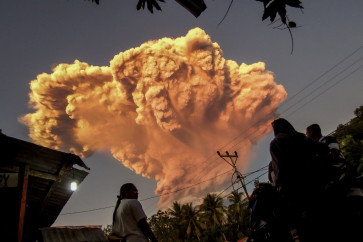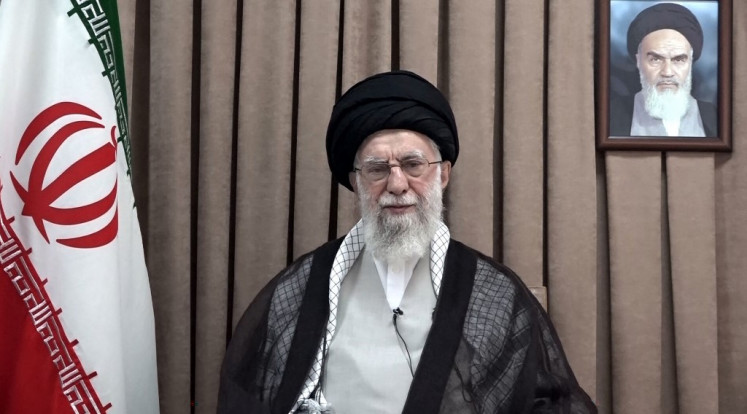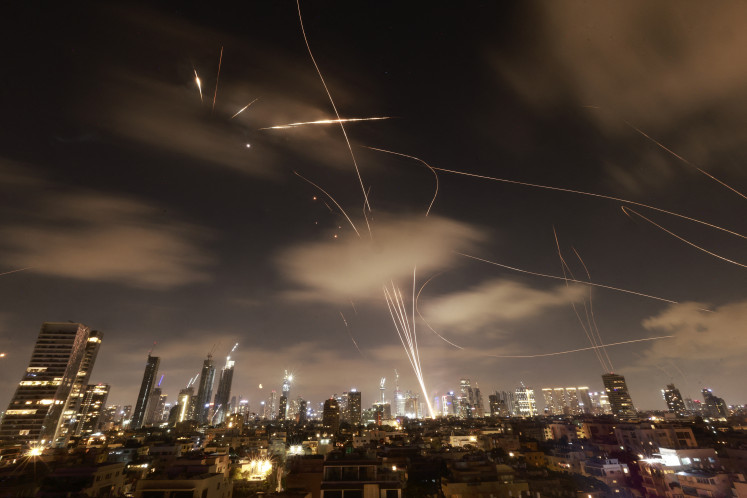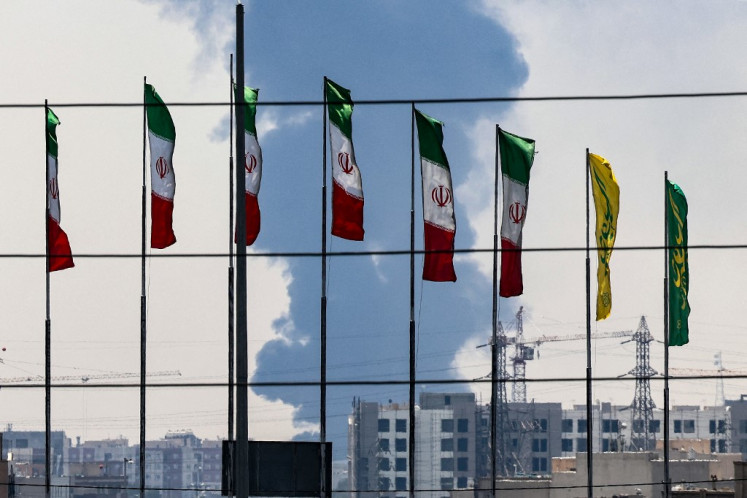Popular Reads
Top Results
Can't find what you're looking for?
View all search resultsPopular Reads
Top Results
Can't find what you're looking for?
View all search resultsRGE Group to operate integrated viscose fiber factory in 2018
Diversified business group Royal Golden Eagle (RGE) — founded by conglomerate Sukanto Tanoto — is on track to build the first integrated viscose fiber factory in Indonesia, which it claims will help meet domestic demand of viscose and drive exports
Change text size
Gift Premium Articles
to Anyone

D
iversified business group Royal Golden Eagle (RGE) — founded by conglomerate Sukanto Tanoto — is on track to build the first integrated viscose fiber factory in Indonesia, which it claims will help meet domestic demand of viscose and drive exports.
The factory is expected to be completed in 2018 and will be operated by Sateri Viscose International (SVI), part of the RGE Group.
The raw materials will come from RGE’s other business unit, Asia Pacific Resources International (APRIL), which plants acacia and eucalyptus and processes the plants into pulp.
“[SVI] will be the first viscose fiber producer in Indonesia with an integrated production chain. There are a few other producers today, but their raw materials are imported,” SVI director Thomas Handoko said on Friday.
Ground breaking of the Rp 14.9 trillion (US$1.11 billion) factory took place earlier this year, next to APRIL’s pulp and paper mills in Pangkalan Kerinci, Riau province.
Also located there are APRIL’s and its suppliers’ combined one million hectares of concession land, 480,000 ha of which is home to pulp producing trees. APRIL produces 2.8 million tons of pulp per year.
Thomas claimed SVI would strengthen Indonesia’s position as the second largest viscose fiber producing country in the world and add to Indonesia’s foreign currency reserves by exporting 60 percent of its 350,000 tons of targeted annual production.
Its export value is estimated to reach $468 million per year.
RGE’s entrance into the viscose fiber business is expected to help the group maintain profit margins on the back of weak paper sales growth.
The fiber is largely used to produce rayon, raw materials for textile and other products, such as baby wipes, face masks, surgical gowns and medical pads.
The national demand for paper, meanwhile, is estimated to decelerate this year with 2 to 3 percent growth rate only, causing paper prices to drop to less than $700 per ton on average, according to the Indonesian Association of Pulp and Paper (APKI).
Indonesian Association of Synthetic Fiber Producers (APSFYI) secretary general Redma Gita said SVI’s presence would fill the viscose fiber shortage in the country.
At present, only two producers operate in Indonesia, Indo Bharat Rayon and South Pacific Viscose, with combined production at 500,000 tons per year, 150,000 tons of which are exported. The national demand itself stands at 500,000 tons.
“Viscose fiber is a capital intensive industry, and it needs strict waste control; that’s why there are only a few producers here,” Redma said.
“I think SVI benefits from its Chinese partner Sateri [also part of the group], which has been a long-time player in China. [Sateri] already has experience in high technology production and waste control systems,” he added.
There is only a small number of viscose fiber producing countries at the moment and Indonesia currently sits in the third position after China and India, Redma said.
The US, Europe and Japan reportedly cut their viscose fiber industries recently due to a series of factors, including costs and environmental issues.
This has opened an opportunity for several Asian countries to tap into the market. Various statistics put global viscose fiber output at more than 4.9 million tons in 2013 and China contributed to over 65 percent of the figure.
-----------------
To receive comprehensive and earlier access to The Jakarta Post print edition, please subscribe to our epaper through iOS' iTunes, Android's Google Play, Blackberry World or Microsoft's Windows Store. Subscription includes free daily editions of The Nation, The Star Malaysia, the Philippine Daily Inquirer and Asia News.
For print subscription, please contact our call center at (+6221) 5360014 or subscription@thejakartapost.com









